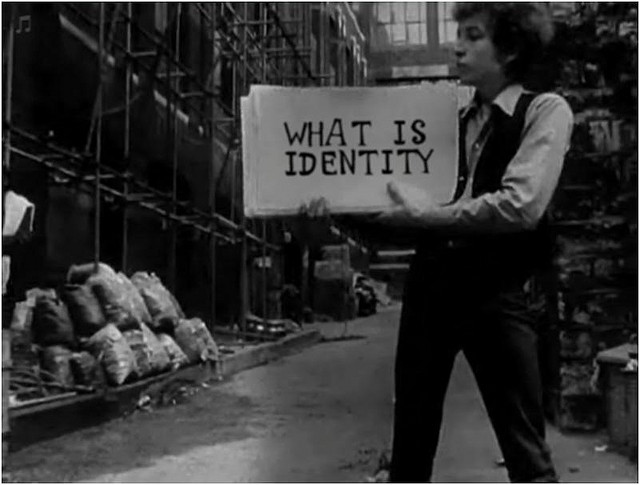
Halloween is my favorite way to start the holiday season, as costuming is imaginative and wild and free. We get to play our alter-egos and our idols.
As we trickle into Thanksgiving and the winter holidays, the show can feel a bit more rehearsed. Amidst the warmth and glow of family and friends, there is a tinge of recital.
We all know the dance.
Upon re-connecting with distant relatives and acquaintances, we find ourselves exchanging packaged introductions of our current life status in terms of careers and relationships and hobbies.
I find it simultaneously amusing and mildly frustrating to condense myself into a tagline. Like trying to squeeze the night sky into a mason jar.
As the incomparable Alan Watts maintains, “One person when asked, ‘Who are you?’ will answer, ‘I’m a doctor.’ Another person will fall silent because he realizes how profound the question is.”
This always hits me hard at holiday gatherings. After a quick exchange of predictable pleasantries and banal bullet-points, I am often left feeling a little under-represented. A little empty.
Recently I’ve changed my approach to how I think about Identity, and how I interact with others in this space. These realizations have left me feeling much more empowered, satisfied and connected with others. And there’s no better time to experiment with these tactics than during the dance of the Sugarplum Season.
1. Re-phrasing the question—we are not what we do.
Most of us are likely guilty of it; when we introduce ourselves to others, it is impulsive to represent our personal identities in terms of our roles in society, our familial relationships, our hobbies. I used to do this habitually.
“I am a physicist and cancer researcher. I am a loving sister and daughter. I am a runner and yogi.”
I am, I am, I am… But. I am defined by these things?
Well, no. Not fundamentally. These are simply social constructs.
I have started re-phrasing the question. When asked about my job, career or how I spend my time, I’ve starting speaking to what I love, and not what I do.
“I love to help others, especially through creativity and innovation. I love to empower brilliant minds to imagine and create something impactful. Something altruistic. I’m lucky, because I get to do this in my work.”
This immediately changes the framework. When we flip the definition of our personal identity from a societal role to what makes our hearts sing, we’re representing who we are at our core. Not just what we do as a function. It is immensely satisfying to speak to what we love, because it is a better representation of who we are than perhaps anything else.
2. Embracing our childlike spirit—we were once free and undefined, and we still are at heart.
There’s perhaps no better time than the holidays to embrace the childlike spirit that’s swimming under our adult shells. This is incredibly freeing.
Why?
From a very young age, we are taught to adopt roles as a form of Identity. Doctors, engineers, artists. This type of schooling is meant to serve as a way to help society understand how to place us as individuals. As a way to define our personal “brand.”
But we were not born branded. As children, we are born with the freedom to role-play. To try out many different personas. To play dress-up.
I have fond memories of my wildly diverse childhood exploits. Exploring every corner of possibility and imagination. Some days I was pioneering the woods for secret passages and hidden treasures. Splashing in streams and overturning stones. Rescuing injured critters and bringing them back home to mend, much to my mother’s chagrin.
Some days I was painting watercolor masterpieces. Or was building miniature log cabins.
My adventures were a myriad of creative experiences and roles. I was undefined and free.
Nowadays, I tumble into magic willfully and often. Headfirst. Grinning like a fool.
Reverting to this childlike state of being reminds us that we are free to be whatever we want. We were free then. And we are free still.
3. Releasing our own definitions—we tend to define one another.
Identity is a funny thing. It is not just a function of our own sense of self. It is a reflection of others. Or more simply put, we define one another. Often in the blink of a handshake.
As I observe the introductory roundtable that occurs at holiday gatherings, it becomes so clear.
I think of the unconscious assumptions we make when someone introduces him/herself as a “doctor,” for example.
Considering our childhood schooling, it’s no wonder. As we mature, we are taught to seek a societal identity. To find our place.
I think back to my childhood days of adventuring.
On the days I was saving critters, I was encouraged to be a vet.
On the days I was painting, I was empowered to pursue a life as an artist.
On the days I was building, I was destined to be an architect.
These are well-defined roles. We are encouraged to adopt these roles because our social identity is inter-tangled with our social institutions. And so our fellow humans reflect our own identity upon us.
In this framework of societal role-playing, we don’t decide who we are. We subject ourselves to what others tell us we are.
Once I realized I was probably subconsciously subjecting others to the same type of definitions that were being forced upon me, I changed the way I viewed others. I no longer lead with questions like, What do you do?” I lead with conversations about “what you love.”
4. Letting go—finding freedom in shedding identity.
There’s no more powerful way of liberating ourselves than simply detaching from the perception of identity. Many times when I meet new people, I don’t even share what I do or where I’m from or my hobbies. I just leave it at the door.
This can be difficult. Most of us are deeply attached to identity. Many of us spend years, decades even, deliberately discovering our sense of identity as we wade through adulthood.
The truth is that the full unveiling of our real selves does not occur in childhood. It does not occur in adolescence or adulthood. It occurs throughout our lives as a series of transformations and renewals.
The skin of Identity that we wear today will stretch and morph. There is so much freedom in shedding this skin.
So let go. Next time you’re at a gathering, or meeting someone for the first time, leave your identity at the door. Forget what you do. Forget how others perceive you. Take off the societal make-up. Give yourself permission your shelf your social role.
This used to feel uncomfortable and unsafe to me at times. But I remind myself that our social identities are just illusions anyway.
And there is a deep sense of joy and liberation in this realization.
So here’s to being your most authentic, free, true self this holiday season. And always.
~
Relephant Favorite:
Who Am I?
~
Author: Cammie Noel
Editor: Travis May
Image: Flickr/Dominic Sayers






Read 0 comments and reply